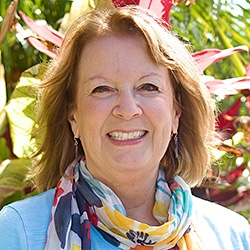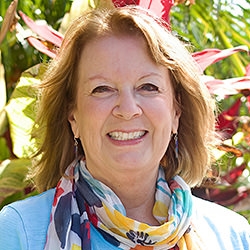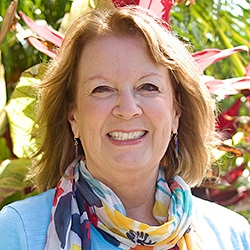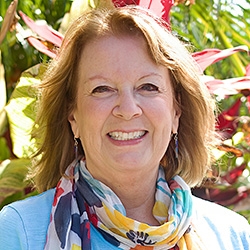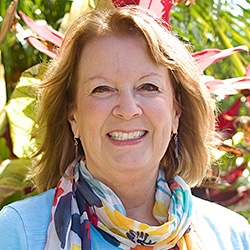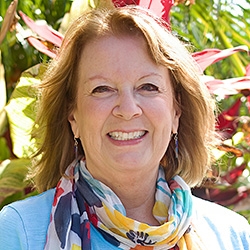

Search Results: work
-
Trainer Tip: If you're doing personal growth work, and changing your behaviors, you may find yourself wanting others to join your efforts with similar levels of enthusiasm. When they don't do so, you may feel frustrated and place judgments on them, thinking they aren't as caring. You'll be less likely to feel disappointed in people if you remind yourself that when you do personal growth work, what needs you are meeting for yourself.
-
- Strengthen embodied awareness
- Integrate inner and outer worlds to create a connecting "corridor"
- Identify projected images that prevent connecting
- Embrace fear and transform reactivity
- Create a support network where you can express and be heard
-
Dear friends,
Every so often, gratitude rolls over and through me like a tidal wave, leaving me with awe in its wake. I think of my grandson, River. I think of my wife, Kim. I think of how blessed we are to have the family, friends, and community we have. The other person I’m feeling immense gratitude for today is Marshall Rosenberg. It was his birthday last month, and each year, I get re-immersed in this heartwarming, almost overwhelming, sense of gratitude for this incredible person who changed my life with his vision, heart, and clarity. Let me tell you how Marshall changed my life.
-
- Support family, community, and organizations to realign with life
- Get the building blocks of integrative decisions that work for all
- Learn to lean on all available capacities to dance together for liberation
- Reweave the threads of togetherness into something stronger than individual existence
-
-
Less than 2 weeks ago from the time I’m writing this letter, Hamas militants crossed from Gaza into Israel and killed more than 1,300 people, most of them civilians. Israel then retaliated and killed over 3,000 Gazans, most of them civilians. The death rate continues to increase every day.
-
When working to repair a relationship after conflict, and after reaching mutual care and understanding, you’re more likely to prevent future disconnection in similar situations by coming to clear, specific, and actionable agreements. Ensure requests for agreements come from a negotiable needs-based dialogue. Clarify specifics and plan to revisit agreements to assess their effectiveness.
-
- Explore the complexities of how we can care for all of life using NVC
- See the role that power plays in relation to observations, feelings, needs, and requests
- Learn how to support people from many backgrounds in being able to apply NVC
- Discern how to engage with these vast topics as we learn and share NVC
-
-
- Understand the essential relationship between personal healing and social change — and how to communicate it to others.
- Increase your compassion capacity for different ways of being in the world.
- Get clarity about the difference between equity and equality — and how to generate equitable processes in your communities and networks.
- Obtain tools to explore the various factors that contribute to your understanding of power and privilege — including your own.
-
Trainer Tip: Do you ever think you’re taking life just a little too seriously? Many of us work hard trying to improve our outlook, our ability to communicate, and our lives. Sometimes we work so hard, we forget to enjoy life. So let’s make a pact to enjoy our day.
-
When we take a leap in life and put our hearts out into the world in new or bigger ways—sharing a song, dance, or poem, writing a book, competing at a sporting event, giving a speech, and so on—there is greater potential for aliveness but also for shame and pain
-
Trainer Tip: Our inner critic judges ourselves and other people; and it is the most likely to get scared when we begin to make a change. It holds wisdom for us if we are willing to listen. When we acknowledge our inner critic and empathize with its need, we gain insights into ourselves and we clear the way for resolution.
-
Live from the beauty of needs through deep self-compassion and spacious inner transformation.
-
Ask the Trainer: Is a confidentiality agreement typically used in NVC practice groups?
-
Trainer Tip: Today, when you tell yourself that you "have to" or "should" do something, notice what you feel and experience - is it a sense of duty, obligation, guilt, shame, overwhelm, constriction, heaviness? Then consider the underlying needs you are trying to meet with the activity. This can shift the purpose and intention with an energy that motivates our actions can bring empowerment and joy to our lives.
-
Trainer tip: When you tell yourself that you have to do something, you're more likely to disconnect yourself from the needs you’re trying to meet, and also diminish the joy in your life. Instead, experiment with translating your “shoulds” and “have tos” into the need you are trying to meet.
-
Penny Wassman shares this first workshop exercise as an opportunity to build connection.
-
Miki Kashtan shows how translating judgments into needs transforms family conflict and connection.
-
If you’ve ever dreaded attending a meeting – or watched in dismay as your group collapses into conflict – know that a methodology known as Convergent Facilitation offers you possible solutions. It’s based on one simple experience: that people come together at the level of their underlying principles, needs, aspirations, and dreams, not at the level of their surface positions.
Convergent Facilitation is a highly efficient decision-making process developed by Miki Kashtan from the principles of Nonviolent Communication. It enables you to look beneath the surface and find the essence of what’s important to different stakeholders, and bring it together into one set of principles that lead to proposals and ultimately decisions. As a result, it readily produces solutions and decisions that everyone can embrace.
Quick Links

Stay in Touch!
We value your privacy, won't share your email address and you can easily unsubscribe any time.

